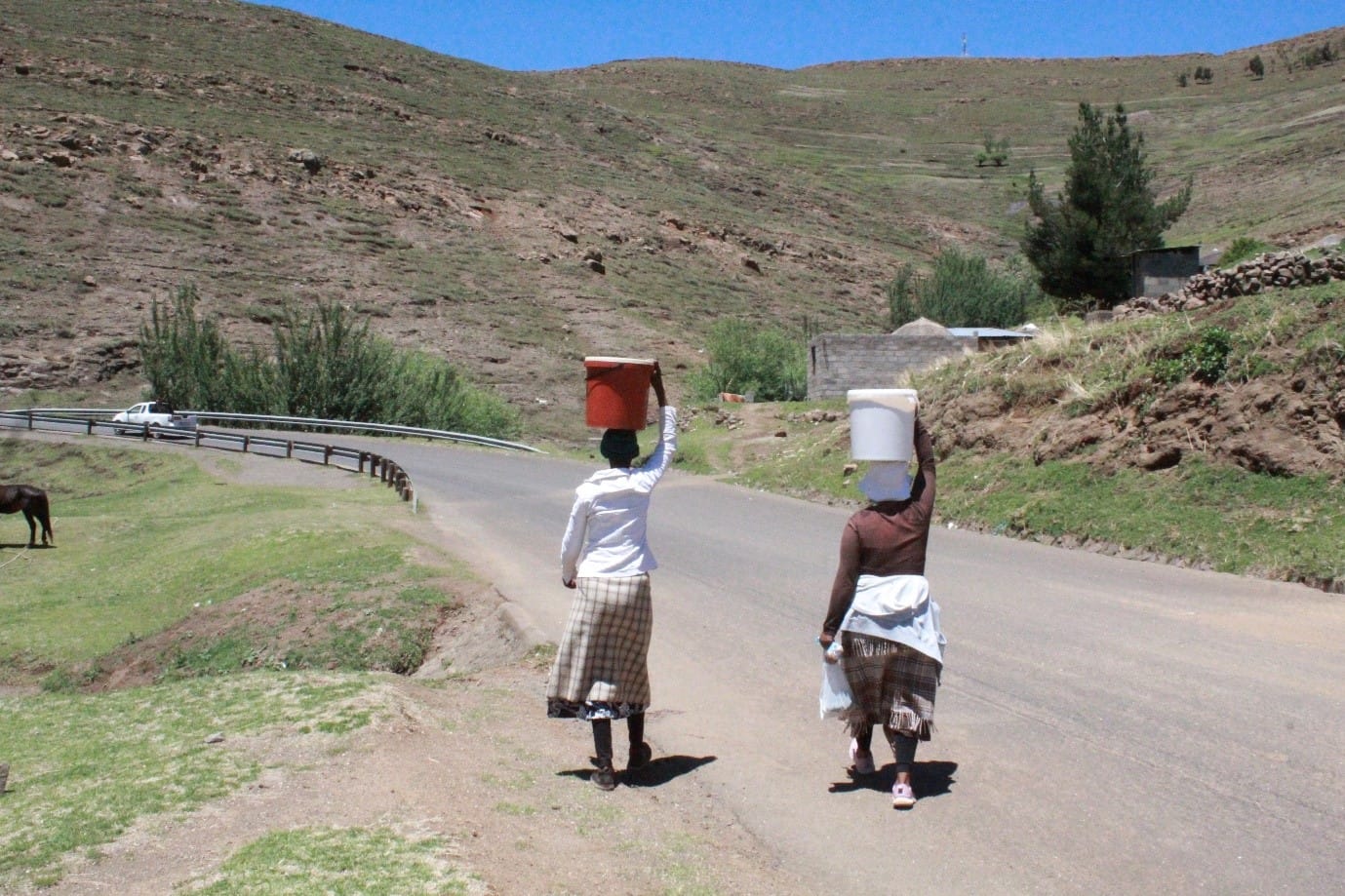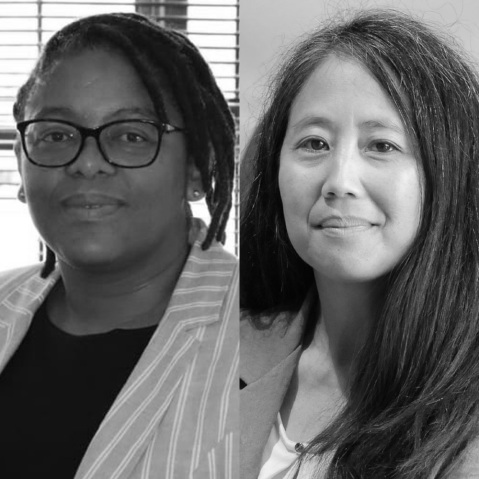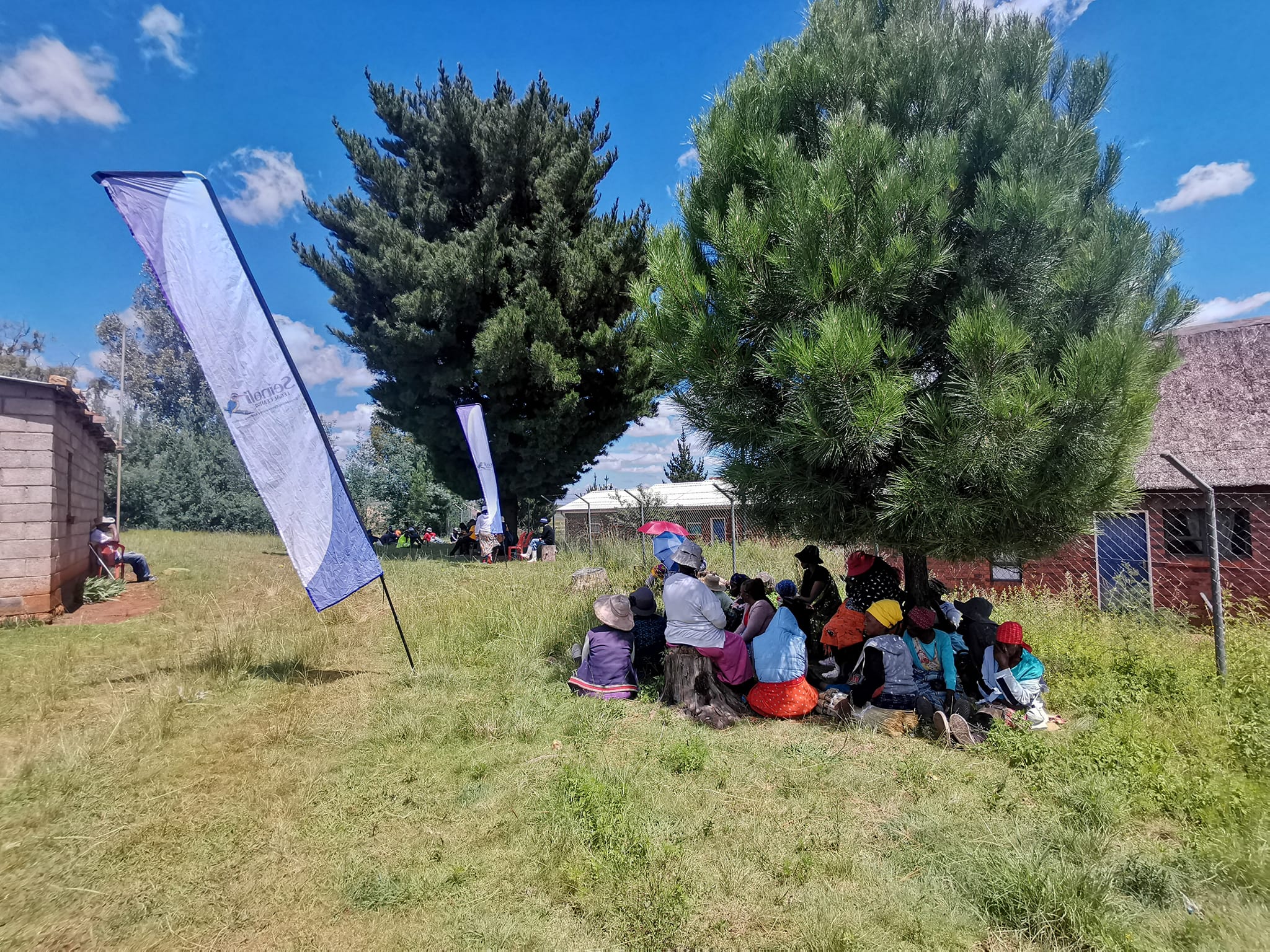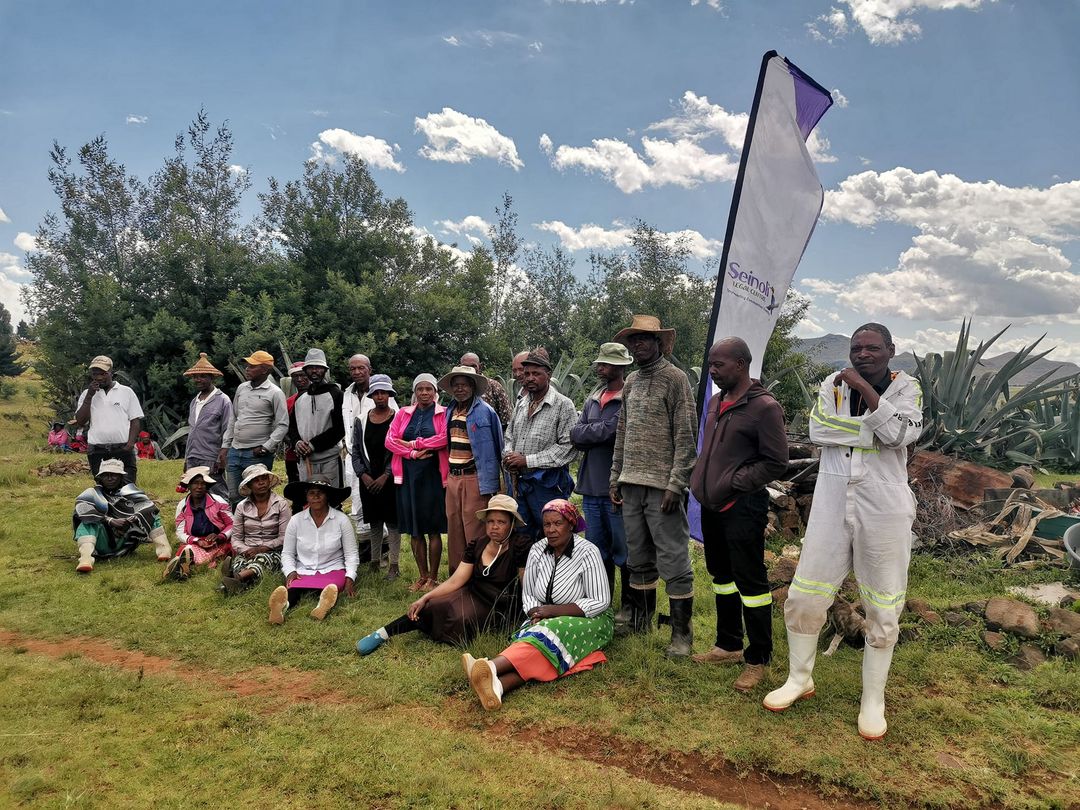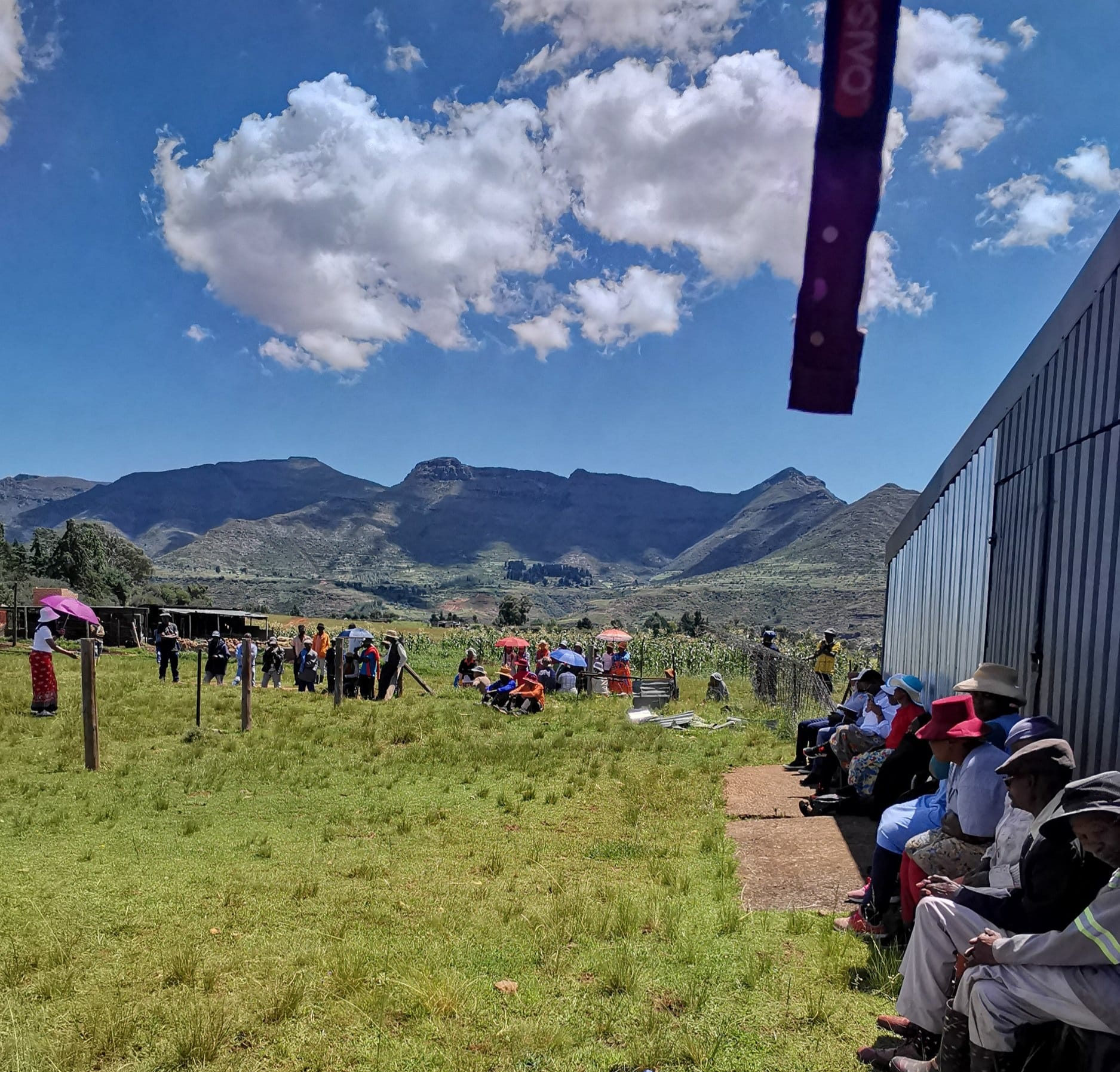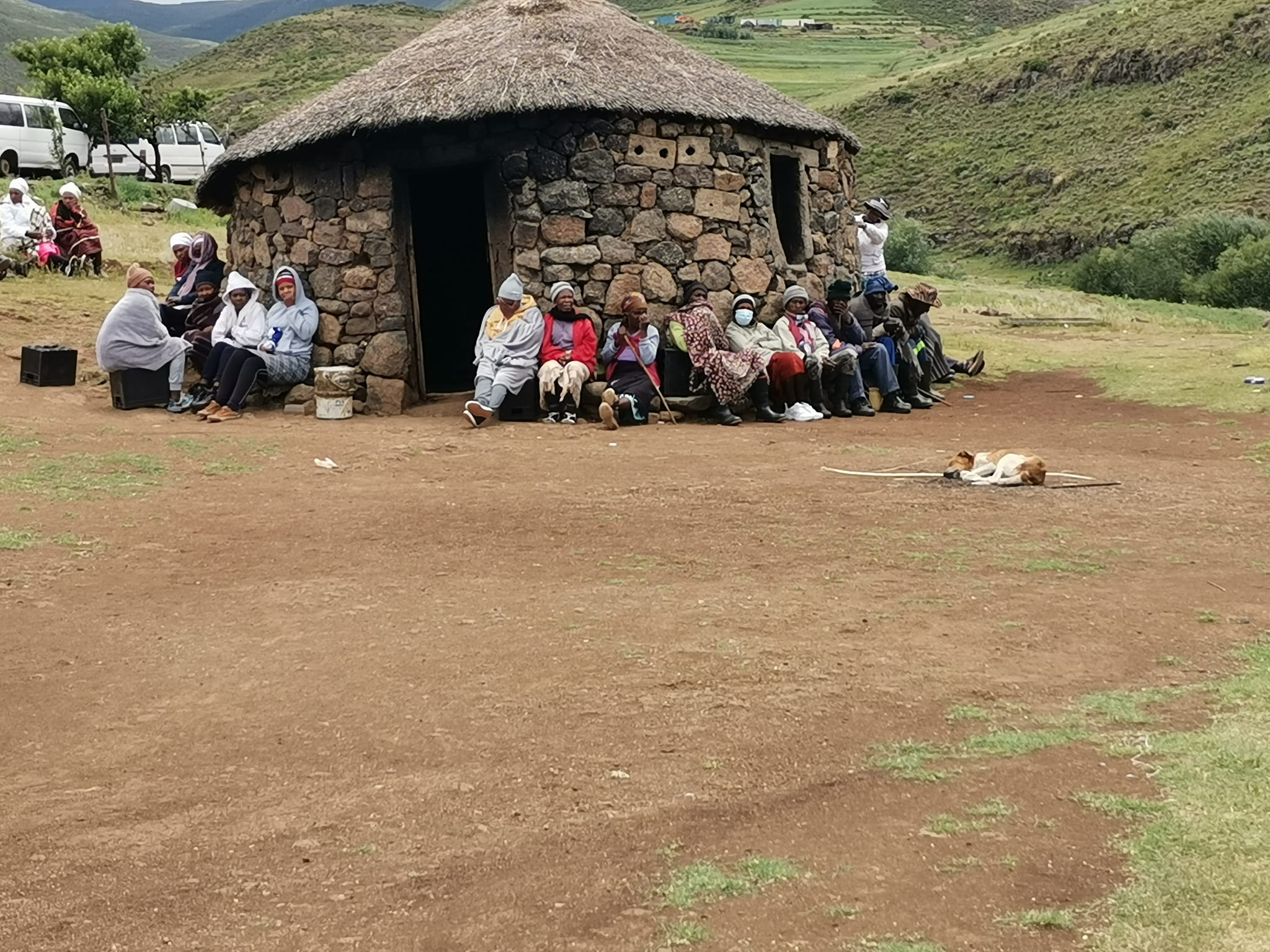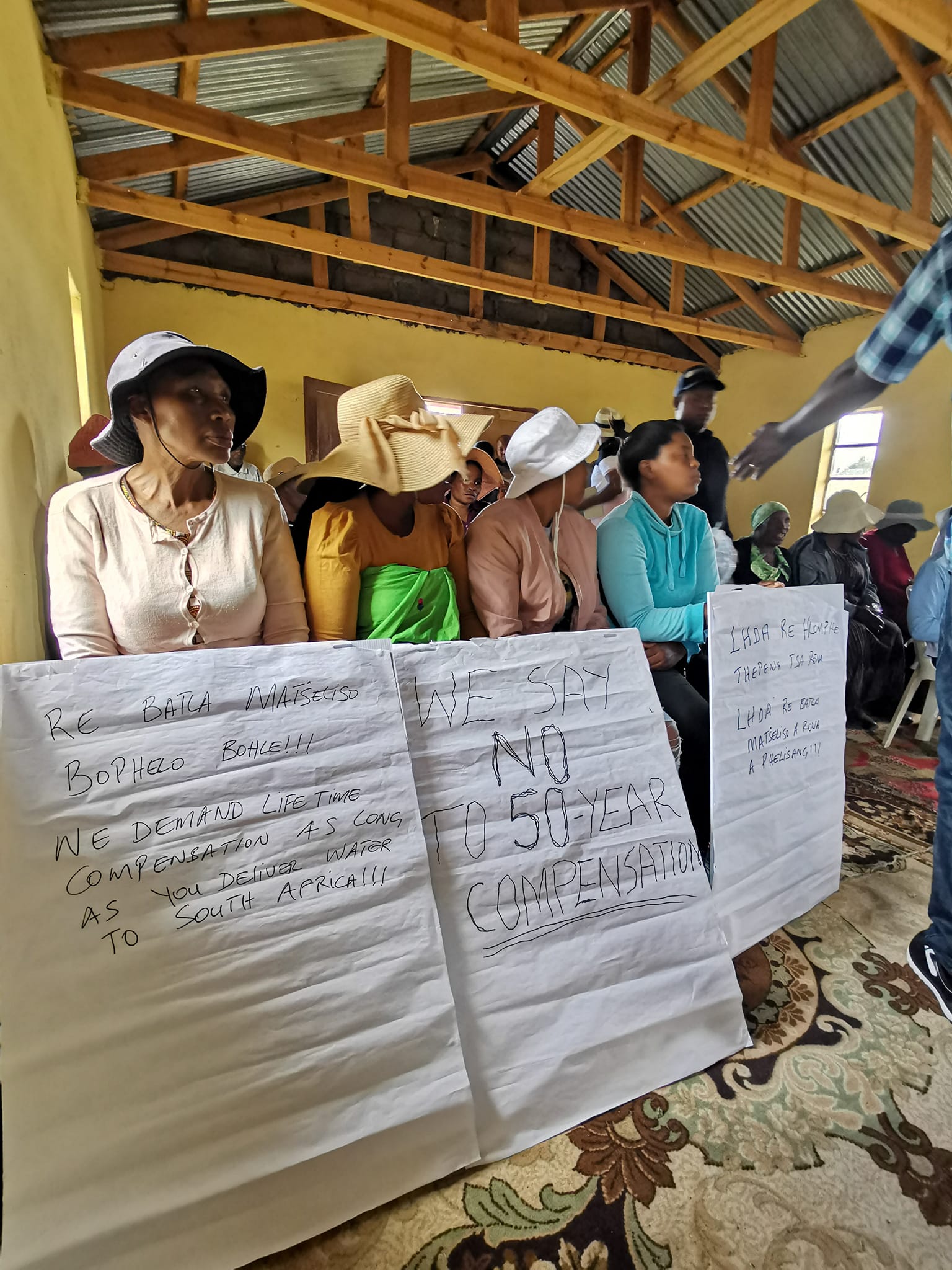By Seinoli Legal Centre Executive Director, Reitumetse Nkoti Mabula and Oxfam South Africa Global Impact Manager, Marianne Buenaventura.
The next phase of the Lesotho Highlands Water Project is underway, and the human rights costs are high. Hundreds of families will be involuntarily resettled and displaced from their homes and lands. Multitudes stand to lose thousands of hectares of arable and grazing land.
Recognized as one of the most outstanding engineering achievements of the last century, the Lesotho Highlands Water Project (LHWP) is indisputably an engineering marvel that was also hailed for the profound economic benefits it would bring to both Lesotho and South Africa.
It has instead become internationally notorious for its devastating socioeconomic and environmental impacts on highland and downstream communities. But this is hardly ever highlighted as much as the engineering achievements or the perceived economic and service delivery benefits for the two countries.
Phase 1 of the project, involving the construction of Katse Dam and Muela Hydropower Station (Phase 1A) and Mohale Dam (Phase 1B), dispossessed more than 30,000 Basotho of their cropland and grazing land. The expropriation of land was executed without equitable/fair compensation and proper livelihood restoration plans.
The project submerged 1,500 hectares of arable land, 1,900 ha of cropland and more than 5,000 ha of grazing land, exacerbating soil erosion and overgrazing as farmers were forced to cultivate on progressively steeper slopes and graze animals in increasingly smaller and condensed areas.
There have been long-term concerns that communities did not get direct economic benefits and/or continued support where such benefits had been provided. Many of these communities are without water, and in some, the water supply from natural springs has been polluted while others have been destroyed due to a lack of maintenance.
Communities are not allowed to access the dam water for household use, irrigation or for livestock to drink. Fishing in the dam was for a long time expressly prohibited until recently. Communities are now permitted to fish with a fishing licence.
“The dam contributed to increasing vulnerabilities, including the risk of HIV infection. Relationships between female residents and construction workers were common, and transactional sex (the exchange of sex for money or gifts) between local schoolgirls and construction workers was rife. HIV/Aids infection rates skyrocketed in construction areas, yet these communities remain without access to basic healthcare services.”
“With the social influx and labour migration expected when construction of the dam itself commences, the risk that transactional sex will resume also increases the risk of increased HIV-infection rates, especially among young women. Research has shown that adolescent girls and young women are significantly more at risk from HIV infection due to transactional sex, compared with men and boys of the same age.”
These are known facts, to both Lesotho and South Africa, and it is heartbreaking that they have now started the second phase of the LHWP without addressing these residual issues, which violate human rights on many levels.
These violations include unfair evictions and the relocation of indigenous communities from their traditional lands; sexual and gender-based violence being exacerbated by increased labour, including migrant labour required for construction work; and extensive environmental degradation, including water and other critical natural resources on which communities rely for both sustenance and their livelihoods.
Contracts for the construction of Polihali Dam, Phase 2, were awarded in November 2022. There are 36 affected communities in the remote Mokhotlong district where the dam will be constructed.
Hundreds of families will be involuntarily resettled and displaced from their homes and lands, a process that will have significant economic and socio-cultural implications for generations to come. Multitudes stand to lose thousands of hectares of arable and grazing land.
The result is going to be food insecurity, impoverishment and the breakdown of social networks and culture. But this is not being given as much attention as the majestic bridges, the gigantic dam and the beautiful roads that open the highlands to tourists.
Up to this point, the Lesotho Highlands Development Authority (LHDA), the project’s implementing authority, has been implementing advanced infrastructure works (such as the construction of roads and bridges and the erection of power lines) to make way for the construction of the Polihali Dam. There are nine communities that are at the epicentre of these works.
Astoundingly, the governments of South Africa and Lesotho have not learned any lessons from the implementation of Phase 1, because the same mistakes are being repeated:
- Compensation is not being paid or is delayed and inadequate;
- Access to water has been impeded and women are forced to walk long distances to fetch water at times from unsafe water sources shared with animals. Some are forced to collect water from river streams that have been polluted by LHDA contractors;
- There is no access to health facilities – people are forced to walk up to two hours to access the nearest health centre; and
- There are reported cases of sexual exploitation of young women who are forced to sell their bodies for work or for money. With the social influx and labour migration expected when construction of the dam itself commences, the risk and prevalence of HIV in these communities will increase, contributing to increasing vulnerabilities within communities and particularly among women.
Lesotho has in recent years been affected by climate change shocks including unusual dry seasons and heavy rains which have affected agricultural production, leaving the majority of the population food insecure with at least 521,000 people in food crisis. The Polihali Dam is going to worsen the situation.
It is therefore imperative that government officials from South Africa and Lesotho – and also development finance institutions supporting the project (the Development Bank of Southern Africa, the New Development Bank and the African Development Bank) – ensure that project compliance with environmental, social and climate-related standards are met from the earliest stages of the project.
There is an urgent need for the LHDA under Phase 2 to mitigate the severely negative impacts of the dam construction and operation on communities by ensuring, among others, meaningful consultation with communities throughout all project planning and implementation stages; adequate and fair compensation for resettlement, including for women; and devising a responsive livelihoods restoration policy which takes into consideration climate change shocks.
It is well known that large infrastructure projects can increase the risk of several forms of gender-based violence (GBV) such as sexual exploitation and abuse and sexual harassment, including the demand for sex work. Mega-infrastructure projects such as the first phase of the LHWP have proven to increase the vulnerability, including worsening levels of poverty, inequality and GBV, of affected communities.
In the case of the LHWP 1, when land redistribution occurred, women were extremely vulnerable to GBV, not only physical but also economic violence. In Lesotho, where the legal system precludes women from holding land titles, families who had received some limited minimal compensation for resettlement often excluded women and female-headed households.
This problem is not unique to Phase 1 of the project; even under Phase 2, women continue to face the same challenges.
Manako Lethari of Tloha-Re-Bue, Mokhotlong, is an example of the majority of women affected by the Polihali Dam. Like them, she has been excluded from compensation in favour of her estranged husband who was deemed as the head of the household by the LHDA. Her complaints and pleas for assistance have fallen on deaf ears.
Lethari continues to live in abject poverty with her 36-year-old disabled daughter. Her dilapidated wheelchair occupies the side of the small traditional rondavel which they call their home. It has weeds growing out of the thatch roofing that is already in a desperate state of disrepair. It is a miracle that it has not yet collapsed with the heavy rains and strong winds the country has recently experienced.
It is high time that infrastructure development projects such as LHWP 2 – which include support from development finance institutions mandated to promote inclusive, sustainable development – empower and not disempower women.
All stakeholders involved in LHWP 2 should commit to making every effort to learn from the mistakes made in the first phase of LHWP. At the very least, LHWP 2 should convene effective and timely community consultations, provide basic services such as clean water, and ensure adequate and fair compensation to all affected communities – especially women who have in the past been left behind.
This would be a real way in which South Africa, Lesotho and all stakeholders involved in LHWP 2 can honour Human Rights Month. The 2023 theme for Human Rights Month in South Africa is, “#LeaveNoOneBehind – walk for your rights”.
Now is the time to take concrete action towards meaningful engagement with affected communities in Lesotho and move forward, not backward, on the UN Sustainable Development Goals. DM


